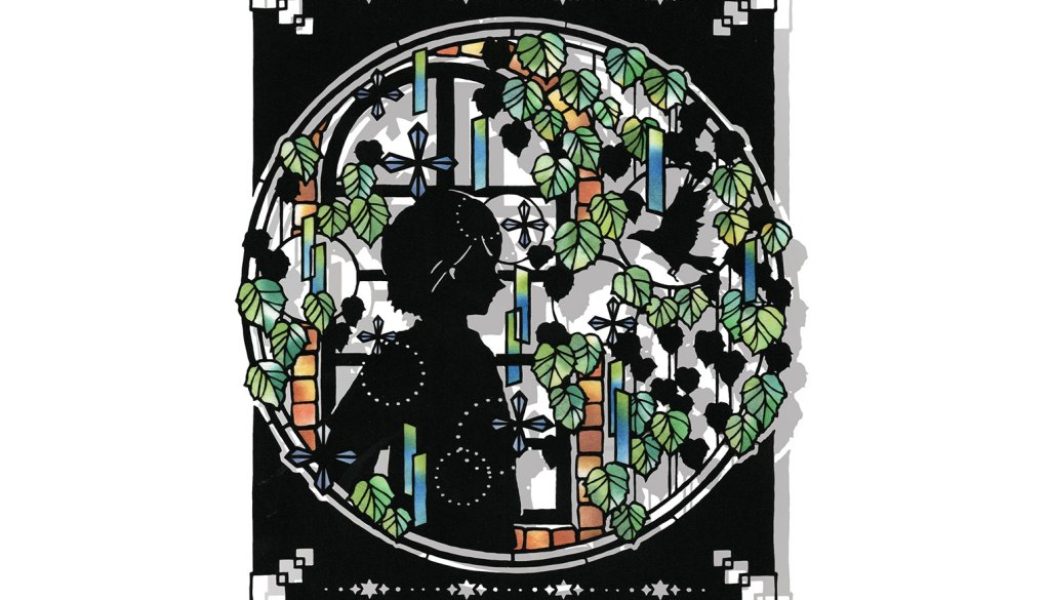
Since 2008, when Miyashita Yuu kicked off his career as a “utaite” singer posting covers of Vocaloid songs on the Japanese video-sharing platform Nico Nico Douga, he has branched out from being a cover singer to being a songwriter, composer, arranger, illustrator and animator of music videos, gifting fans with his multitalented artistry.
He released three albums as an amateur artist, beginning with his first project Zouka (“Artificial Flower”) in April 2013, his follow-up from May 2014 called holidays, and his third set called “Suimyaku” (“Water Vein”) in April 2016. He wrote and sang all the songs on these albums and even illustrated the covers.
Miyashita made his major-label debut in August 2016 with his first album Tsumugi no Ki, then followed up with Ao ni Aruku in December 2018 and Sabitsukumade in January 2021. All of his major-label releases consist of covers of Vocaloid songs and original tracks written by Vocalo-Ps (music producers who create music using Vocaloid software) and Miyashita himself.
Each of these three projects aims to create a kind of chemical reaction between the worlds depicted by the Vocalo-Ps involved and Miyashita’s captivating vocal styles, which is a notable shift from his pre-major-label works. Depending on the mood of the song, he carefully selects from a wide range of styles such as whispery, seductive, and edgy, and has succeeded in building uniquely original worlds in his works as a result. In March 2019, he headlined his first solo concert at Tokyo’s Shinjuku ReNY entitled Ao ni Aruku, Higashi e Nozomu (“Walking in blue, facing east”) to celebrate the release of his second major label set, and has since ventured further out of the virtual world into a wider field.
One of the biggest hits among Miyashita’s collaborative efforts with original Vocaloid tracks is his cover of Vocalo-P Nirukajitsu’s song “Wozwald.” The performance video uploaded in May 2019 has racked up 30.14 million views as of Mar. 12, 2022. Featuring a stereoscopic soundscape reminiscent of ASMR, which was all the rage at the time, the track delivered a uniquely sensory experience that was especially well received by viewers outside of Japan. In March 2020, around when views sailed past 8 million, the remastered version of Nirukajitsu’s “Wozwald” performed by Miyashita was made available for downloads and streaming, and in March of this year, the track was released outside of Japan as well. Miyashita’s dedication to being a “utaite” singer resulted in the collaborative “Wozwald” becoming a sleeper hit.
[embedded content]
In 2021, Miyashita’s track called “Koufukuron” was featured as the ending theme of the anime series Platinum End, the highly anticipated new work created by Ohba Tsugumi and Obata Takeshi, the duo behind the hit series Death Note and Bakuman. The track was released as a single last November, and the album version included in Miyashita’s latest set called Mitsuketa Tobira wa.
The new project — the 30-year-old singer’s fourth under a major label — was created by a completely new production team besides the one behind “Koufukuron,” and while it has some unconventional tracks, the album as a whole has a tranquil mood with tinges of loneliness. Miyashita sat down with Billboard Japan to chat about his latest project.
Were there any changes in your mindset after you were tapped to sing the closer of the animated series Platinum End?
The opportunity renewed my resolve to continue doing my best, but I don’t think it changed my singing style in any noticeable way. Maybe it still hasn’t manifested in my works yet. I figured “Koufukuron” would turn out to be good if I just did what I’ve always done.
[embedded content]
How did you start working on your new album after the release of your first major label single “Koufukuron”?
After the single was released, there was talk of making a kind of mini album of about six or seven tracks. As we asked various people to compose the tracks for the project, the number of songs kept growing, and eventually led to this full album. So to be honest, I didn’t have any kind of clear vision for this project and things just happened to work out that way. [Laughs]
I see, so the process was spontaneous. Were there any new discoveries during the recording of the set?
Yes. Several more versions of myself manifested, and it felt like, “Oh, here’s a Miyashita Yuu that I’d never seen before!” They were right there when I opened up rooms I didn’t know about before. [Laughs]
Is that why you named the album Mitsuketa Tobira wa (“The door that I found is…”)?
The meaning of the title stands on its own, actually. Platinum End helped me discover a new side of myself, so the title is meant to suggest a hope to find something beyond that.
What did you discover in “Saisei”?
I think that in the past, I would have chosen not to express emotion with my voice to deliver the emotional lyrics and performed the number with a detached tone. But the person who wrote the track, Somari, explained their take on it and also shared what kinds of songs inspire their own songwriting, and that helped me interpret “Saisei” in a completely different way from how I normally would have done. I figured I should change my take accordingly, so I decided to put more emotion into my singing this time.
The track “Annei no Utage” by PolyphonicBranch also appears to be pop, but has a darker side to it.
“Annei no Utage” was easy to sing and I had a lot of fun singing it. The phrase in the chorus that goes, “Kono subarashiki sekai ni” (“In this wonderful world”) is really memorable, isn’t it? It would be my fault if I couldn’t leave an impression with such an already memorable melody, but I felt I was able to sing it quite easily this time, so it was a lot of fun. I think I managed to fully express what I intended.
The track “Ayka” in this album is a remake of a previously released track called “Kaya” (sung by Vocaloid GUMI). Did you have the idea for “Ayka” in mind when you were working on “Kaya”?
“Kaya” has a faint storyline and I thought I could expand on it a little more, but I had no intention of making “Ayka” when I was working on “Kaya.” And it’s not really a continuation of the story, but rather another point of view or the other side of the same coin, so to speak, kind of like my song “Ithna.” I expect my fans will be able to unravel it pretty easily. [Laughs]
The album title appears in the lyrics of “Ayka.”
Yes, it does. I included the phrase after I came up with the album title. I added a side story about finding something new and the way various things happen from there. I asked Marron Bosatsu to arrange it for me. You know what, though, I already had the backing track for “Ayka” since about a year ago, but couldn’t find an opportunity to make a video for the song or put it on an album. I was able to include it on this album at last.
How did it feel when the album actually came together?
For example, Somari was very particular about the situations depicted in the lyrics, and Satsuki described how they wanted me to sing the song with an edge. All the songwriters had images of their songs that were important to them, so it was fun to tease out those various aspects while I was singing them.
The soundscape of this album is very different from your previous albums, and feels like something new is about to start from here.
Yes, I think it’s because the composers have completely changed from my past albums, so we took a totally different route, so to speak. It’s more chill and I think it’s the kind of album that quietly seeps into your heart. I also think that it’s probably easier for people to pick up on what I’m thinking, like what was going through my mind when I sang the songs. I expressed the lyrics in many of the songs in a straightforward, easy-to-understand way, so I think each track can be quickly interpreted by anyone who listens to it.
This article by Komachi Mio first appeared on Billboard Japan. The names in this article appear in Japanese order, surname first.
[flexi-common-toolbar] [flexi-form class=”flexi_form_style” title=”Submit to Flexi” name=”my_form” ajax=”true”][flexi-form-tag type=”post_title” class=”fl-input” title=”Title” value=”” required=”true”][flexi-form-tag type=”category” title=”Select category”][flexi-form-tag type=”tag” title=”Insert tag”][flexi-form-tag type=”article” class=”fl-textarea” title=”Description” ][flexi-form-tag type=”file” title=”Select file” required=”true”][flexi-form-tag type=”submit” name=”submit” value=”Submit Now”] [/flexi-form]










Tagged: Billboard Japan, entertainment blog, Global, Japan, music, music blog, Music News